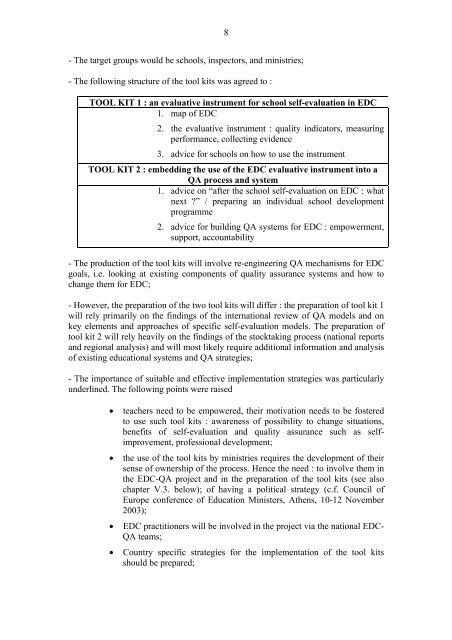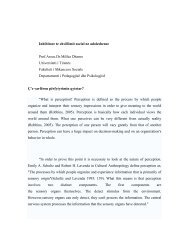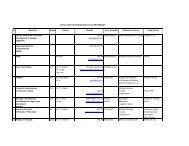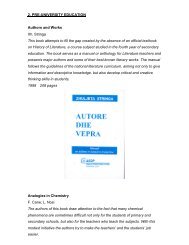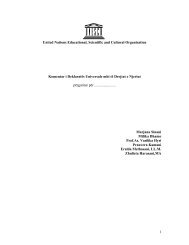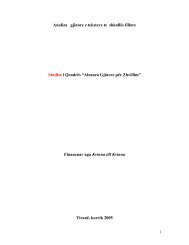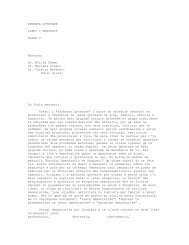FROM POLICY TO EFFECTIVE PRACTICE ... - Milika Dhamo
FROM POLICY TO EFFECTIVE PRACTICE ... - Milika Dhamo
FROM POLICY TO EFFECTIVE PRACTICE ... - Milika Dhamo
Create successful ePaper yourself
Turn your PDF publications into a flip-book with our unique Google optimized e-Paper software.
8<br />
- The target groups would be schools, inspectors, and ministries;<br />
- The following structure of the tool kits was agreed to :<br />
<strong>TO</strong>OL KIT 1 : an evaluative instrument for school self-evaluation in EDC<br />
1. map of EDC<br />
2. the evaluative instrument : quality indicators, measuring<br />
performance, collecting evidence<br />
3. advice for schools on how to use the instrument<br />
<strong>TO</strong>OL KIT 2 : embedding the use of the EDC evaluative instrument into a<br />
QA process and system<br />
1. advice on “after the school self-evaluation on EDC : what<br />
next ” / preparing an individual school development<br />
programme<br />
2. advice for building QA systems for EDC : empowerment,<br />
support, accountability<br />
- The production of the tool kits will involve re-engineering QA mechanisms for EDC<br />
goals, i.e. looking at existing components of quality assurance systems and how to<br />
change them for EDC;<br />
- However, the preparation of the two tool kits will differ : the preparation of tool kit 1<br />
will rely primarily on the findings of the international review of QA models and on<br />
key elements and approaches of specific self-evaluation models. The preparation of<br />
tool kit 2 will rely heavily on the findings of the stocktaking process (national reports<br />
and regional analysis) and will most likely require additional information and analysis<br />
of existing educational systems and QA strategies;<br />
- The importance of suitable and effective implementation strategies was particularly<br />
underlined. The following points were raised<br />
• teachers need to be empowered, their motivation needs to be fostered<br />
to use such tool kits : awareness of possibility to change situations,<br />
benefits of self-evaluation and quality assurance such as selfimprovement,<br />
professional development;<br />
• the use of the tool kits by ministries requires the development of their<br />
sense of ownership of the process. Hence the need : to involve them in<br />
the EDC-QA project and in the preparation of the tool kits (see also<br />
chapter V.3. below); of having a political strategy (c.f. Council of<br />
Europe conference of Education Ministers, Athens, 10-12 November<br />
2003);<br />
• EDC practitioners will be involved in the project via the national EDC-<br />
QA teams;<br />
• Country specific strategies for the implementation of the tool kits<br />
should be prepared;


